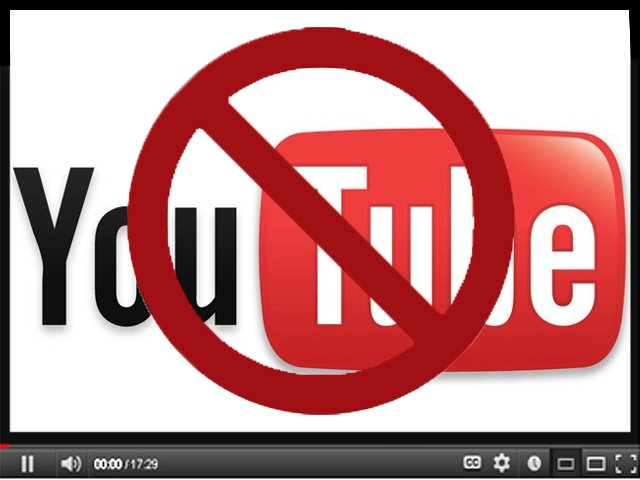
With the YouTube ban in place for almost four months now, Pakistan’s academia questions the efficacy of the step, which has not only hidden the blasphemous content on the world’s largest video sharing website, but also veiled all the other and possibly useful content available.
The ban was imposed on September 17, 2012, after a massive uproar from Muslims across the world, against the excerpts of the blasphemous film ‘The Innocence of Muslims’. Internet users, however, acquired access to the website after the ban was removed late in December, only to see it put back in place hours later.
But the blanket ban, as some argue, has brought more bad than good.
“The fact that you have banned something, and that everyone has found an alternative [route] to work around it, speaks volumes about how people view it,” said research fellow at the Centre for Public Policy and Governance at the Forman Christian College Rabia Chaudhry.
Rabia, whose research focuses on political parties and police reforms, argues that the ban has adversely affected people in the country, who use the website for academic reasons.
“As an academic, I cannot ignore this resource. While it may not be a primary resource of research, it certainly is a secondary one, which helps broaden [one’s] understanding,” she says.
However, former chairman of the Higher Education Commission (HEC) and former federal minister of Science and Technology Dr Attaur Rahman thinks otherwise.
“Academics rely on books and journals that are accessed through websites of publishers, not through YouTube,” he said.
Adding weight to Rahman’s argument, Fahad Ali, a lecturer at the Institute of Business and Information Technology at the Punjab University, believes that “in Pakistan, the usage of the website for research and academic purposes is negligible.”
Officials at the Information and Technology department at the Virtual University in Lahore believe that while YouTube has been an additional resource for communicating their lectures to students, it is not the only one available.
Published in The Express Tribune, January 11th, 2013.
COMMENTS (8)
Comments are moderated and generally will be posted if they are on-topic and not abusive.
For more information, please see our Comments FAQ

















“Academics rely on books and journals that are accessed through websites of publishers, not through YouTube,” – Dr. Atta ur Rehman
If your definition of Academics is restricted to just professors and researchers then true. But many students at the primary, secondary and undergraduate levels use youtube as an educational resource. As a teacher I in the past (when youtube wasn't blocked) would assign my students videos on youtube to watch, so I can free up more of my class time to focus on problematic areas. But NOW THIS AIN'T POSSIBLE! THANX TO OUR GOVERNMENT! They should atleast unblock www.youtube.com/education/ www.youtube.com/teachers/
Banning youtube was such a pathetic move ..it has caused so many complications for people that use it.No other site is used more for video's than youtube.The problem is the illiteracy in Pakistan .A bunch of idiotic mullahs arrange for a their badmash hoodlums to destroy gov't property because people in another country have made a video WTF ??
@Tribune Reader: WELL DONE ,MY DEAR, CONCRETE FACTS, SO NICE OF YOU
Come on guys be realistic... this restriction has caused so much difficulties in watching movies Indian songs and hilarious videos....
I don't personally understand why people are this much dependent on such websites. Guyzz we can live without it.Videos are not the sole sources of the process of education and learning. Written material is much more effective than other items. Other items just keep primary importance. You can take the example of research papers.......
“Academics rely on books and journals that are accessed through websites of publishers, not through YouTube,” - Dr. Atta ur Rehman
That may be true for academics and scholars, but for regular students, it's an invaluable and irreplaceable tool.
No offence to the more senior, but the opinion of older folks counts for less in this situation.
I am a researcher (economist) and I find youtube very useful for such things as learning to use features in say stata or matlab etc. Even learning to use an advanced feature in excel becomes 100 times easier with a video, all of which tend to be on youtube. The websites of many software makers have tutorials in the form of youtube videos which makes life a lot easier than trying to find things in and then understand fat, technical manuals. It is a huge time saver.
It sounds to me that these people are probably going about their work in a very slow and inefficient manner. Someone should give them a training at PU.